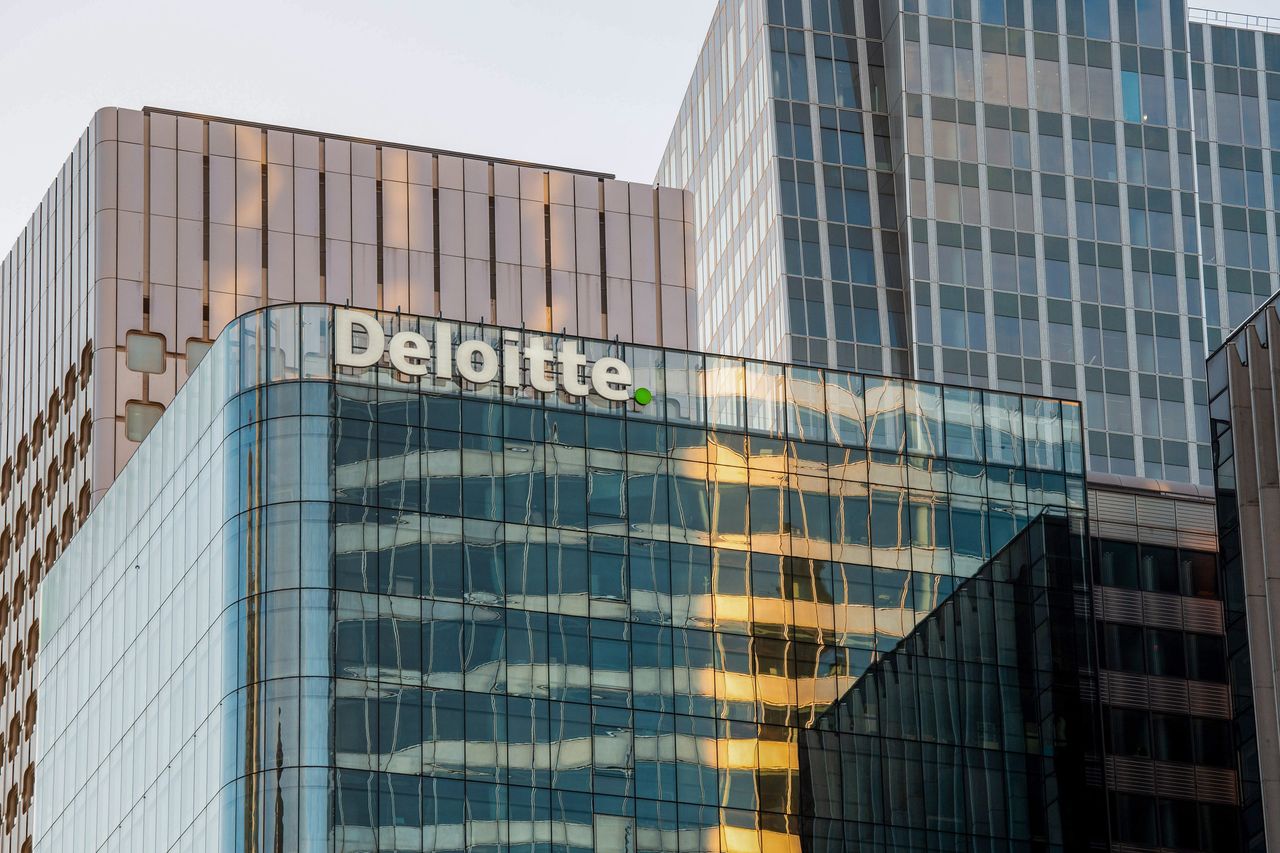Fintech
Deloitte’s Chinese Affiliate to Pay $20 Million Penalty for Asking Audit Clients to Conduct Their Own Audit Work

Washington, D.C.–(Newsfile Corp. – September 29, 2022) – The Securities and Exchange Commission today charged Deloitte Touche Tohmatsu Certified Public Accountants LLP (Deloitte-China), the Chinese affiliate of the Deloitte global network of accounting firms, with failing to comply with fundamental U.S. auditing requirements in its component audits of U.S. issuers and its audits of foreign companies listed on U.S. exchanges. Deloitte-China agreed to settle the charges by paying a $20 million penalty and agreeing to extensive remedial measures.
The SEC order finds that, in the course of numerous audits over multiple years, Deloitte-China personnel asked clients to select their own samples for testing and to prepare audit documentation purporting to show that Deloitte-China had obtained and assessed the supporting evidence for certain clients’ accounting entries. This created the appearance that Deloitte-China had conducted the required testing of clients’ financial statements and internal controls when there was no evidence in the audit file that it had in fact done so.
“We find that Deloitte-China fell woefully short of professional auditing requirements in numerous component audits of Chinese operations of U.S. issuers and audits of Chinese companies listed on U.S. exchanges,” said SEC Chair Gary Gensler. “These basic, foundational auditing requirements are necessary to instill trust in our capital markets. It’s a privilege for issuers to access our markets — the largest, deepest, most liquid markets in the world. Investors in U.S. markets should be protected — and have trust in a company’s financial numbers — regardless of whether an issuer is foreign or domestic.”
“While the SEC’s action today does not implicate a violation of the Holding Foreign Companies Accountable Act, the action does underscore the need for the Public Company Accounting Oversight Board (PCAOB) to be able to inspect Chinese audit firms,” Chair Gensler added. “A fundamental goal of the PCAOB’s inspection regime is to identify weaknesses in the firms’ quality control processes — the very weaknesses at issue in this case.”
“This action involves audit failures at the most basic level. Across multiple years and audit engagements, Deloitte-China auditors failed to meet professional standards, exercise independence and fulfill their essential role as gatekeepers,” said Gurbir S. Grewal, Director of the SEC’s Enforcement Division. “Auditors are vital to the success of our financial markets and the standards they must abide by are neither optional, nor are they aspirational best practices. Rather, they’re foundational to audit quality and investor protection, and every audit firm that conducts audits for issuers with securities trading on U.S. exchanges must meet them. Here, Deloitte-China audit professionals fell woefully short.”
The order finds that the misconduct involved both junior and senior audit team members and reflected a lack of audit supervision by audit partners. The order also finds that Deloitte-China failed to adhere to numerous PCAOB auditing standards, including due professional care of audit evidence, sampling, documentation, internal control over financial reporting, audit supervision, and quality control.
“Accounting firms are critical gatekeepers of our disclosure program, and, when they abdicate their responsibilities as independent auditors, it threatens the health of our U.S. financial markets,” said Melissa R. Hodgman, Associate Director of the SEC’s Enforcement Division. “The Division of Enforcement will aggressively pursue all PCAOB-registered accounting firms that fail to truthfully perform their roles.”
In addition to the financial penalty, the order censures Deloitte-China and requires the firm to complete a review and assessment of its policies and procedures by an independent consultant retained by Deloitte Touche Tohmatsu Limited (“Deloitte-Global”), a U.K. entity with which it is indirectly affiliated. The order further requires Deloitte-China to implement a plan to address deficiencies identified by the independent consultant that is approved and overseen by Deloitte-Global, and to subsequently undergo several additional annual reviews. The order also requires Deloitte-China to require additional training over three years for all of its audit professionals who serve U.S. public company audit clients.
The SEC’s investigation was conducted by John Archfield, Jonathan Jacobs, W. Bradley Ney, and Ian Rupell. It was supervised by Rami Sibay.
Fintech
Central banks and the FinTech sector unite to change global payments space

The BIS, along with seven leading central banks and a cohort of private financial firms, has embarked on an ambitious venture known as Project Agorá.
Named after the Greek word for “marketplace,” this initiative stands at the forefront of exploring the potential of tokenisation to significantly enhance the operational efficiency of the monetary system worldwide.
Central to this pioneering project are the Bank of France (on behalf of the Eurosystem), the Bank of Japan, the Bank of Korea, the Bank of Mexico, the Swiss National Bank, the Bank of England, and the Federal Reserve Bank of New York. These institutions have joined forces under the banner of Project Agorá, in partnership with an extensive assembly of private financial entities convened by the Institute of International Finance (IIF).
At the heart of Project Agorá is the pursuit of integrating tokenised commercial bank deposits with tokenised wholesale central bank money within a unified, public-private programmable financial platform. By harnessing the advanced capabilities of smart contracts and programmability, the project aspires to unlock new transactional possibilities that were previously infeasible or impractical, thereby fostering novel opportunities that could benefit businesses and consumers alike.
The collaborative effort seeks to address and surmount a variety of structural inefficiencies that currently plague cross-border payments. These challenges include disparate legal, regulatory, and technical standards; varying operating hours and time zones; and the heightened complexity associated with conducting financial integrity checks (such as anti-money laundering and customer verification procedures), which are often redundantly executed across multiple stages of a single transaction due to the involvement of several intermediaries.
As a beacon of experimental and exploratory projects, the BIS Innovation Hub is committed to delivering public goods to the global central banking community through initiatives like Project Agorá. In line with this mission, the BIS will soon issue a call for expressions of interest from private financial institutions eager to contribute to this ground-breaking project. The IIF will facilitate the involvement of private sector participants, extending an invitation to regulated financial institutions representing each of the seven aforementioned currencies to partake in this transformative endeavour.
Source: fintech.globa
The post Central banks and the FinTech sector unite to change global payments space appeared first on HIPTHER Alerts.
Fintech
TD Bank inks multi-year strategic partnership with Google Cloud

TD Bank has inked a multi-year deal with Google Cloud as it looks to streamline the development and deployment of new products and services.
The deal will see the Canadian banking group integrate the vendor’s cloud services into a wider portion of its technology solutions portfolio, a move which TD expects will enable it “to respond quickly to changing customer expectations by rolling out new features, updates, or entirely new financial products at an accelerated pace”.
This marks an expansion of the already established relationship between TD Bank and Google Cloud after the group previously adopted the vendor’s Google Kubernetes Engine (GKE) for TD Securities Automated Trading (TDSAT), the Chicago-based subsidiary of its investment banking unit, TD Securities.
TDSAT uses GKE for process automation and quantitative modelling across fixed income markets, resulting in the development of a “data-driven research platform” capable of processing large research workloads in trading.
Dan Bosman, SVP and CIO of TD Securities, claims the infrastructure has so far supported TDSAT with “compute-intensive quantitative analysis” while expanding the subsidiary’s “trading volumes and portfolio size”.
TD’s new partnership with Google Cloud will see the group attempt to replicate the same level of success across its entire portfolio.
Source: fintechfutures.com
The post TD Bank inks multi-year strategic partnership with Google Cloud appeared first on HIPTHER Alerts.
Fintech
MAS launches transformative platform to combat money laundering

The MAS has unveiled Cosmic, an acronym for Collaborative Sharing of Money Laundering/Terrorism Financing Information and Cases, a new money laundering platform.
According to Business Times, launched on April 1, Cosmic stands out as the first centralised digital platform dedicated to combating money laundering, terrorism financing, and proliferation financing on a worldwide scale. This move follows the enactment of the Financial Services and Markets (Amendment) Act 2023, which, along with its subsidiary legislation, commenced on the same day to provide a solid legal foundation and safeguards for information sharing among financial institutions (FIs).
Cosmic enables participating FIs to exchange customer information when certain “red flags” indicate potential suspicious activities. The platform’s introduction is a testament to MAS’s commitment to ensuring the integrity of the financial sector, mandating participants to establish stringent policies and operational safeguards to maintain the confidentiality of the shared information. This strategic approach allows for the efficient exchange of intelligence on potential criminal activities while protecting legitimate customers.
Significantly, Cosmic was co-developed by MAS and six leading commercial banks in Singapore—OCBC, UOB, DBS, Citibank, HSBC, and Standard Chartered—which will serve as participant FIs during its initial phase. The initiative emphasizes voluntary information sharing focused on addressing key financial crime risks within the commercial banking sector, such as the misuse of legal persons, trade finance, and proliferation financing.
Loo Siew Yee, assistant managing director for policy, payments, and financial crime at MAS, highlighted that Cosmic enhances the existing collaboration between the industry and law enforcement authorities, fortifying Singapore’s reputation as a well-regulated and trusted financial hub. Similarly, Pua Xiao Wei of Citi Singapore and Loretta Yuen of OCBC have expressed their institutions’ support for Cosmic, noting its potential to ramp up anti-money laundering efforts and its significance as a development in the banking sector’s ability to combat financial crimes efficiently. DBS’ Lam Chee Kin also praised Cosmic as a “game changer,” emphasizing the careful balance between combating financial crime and ensuring legitimate customers’ access to financial services.
Source: fintech.global
The post MAS launches transformative platform to combat money laundering appeared first on HIPTHER Alerts.
-
Latest News6 days ago
DEMAND AT ASIAN FACTORIES RISES AT STRONGEST RATE IN OVER 2 YEARS, IMPROVING NEAR-TERM GROWTH OUTLOOK FOR MANUFACTURING WORLDWIDE: GEP GLOBAL SUPPLY CHAIN VOLATILITY INDEX
-
Latest News7 days ago
Bitrue Gears Up for 2024 Bitcoin Halving with Trading Competition
-
Latest News6 days ago
Global Airlines Appoints New Head of Finance from KPMG
-
Latest News5 days ago
“The Hainan FTP and Me”: Looking at Hainan’s Transformations
-
Latest News6 days ago
Spendesk combines procurement with spend management through Okko acquisition
-
Latest News7 days ago
BtcTurk Organizes Half Marathon in Istanbul to Celebrate Halving Period
-
Latest News4 days ago
Millions of people unite around doing good on the 18th International Good Deeds Day held yesterday worldwide
-
Latest News7 days ago
Bitget to Take Center Stage at Blockchain Life and Token2049 Dubai



